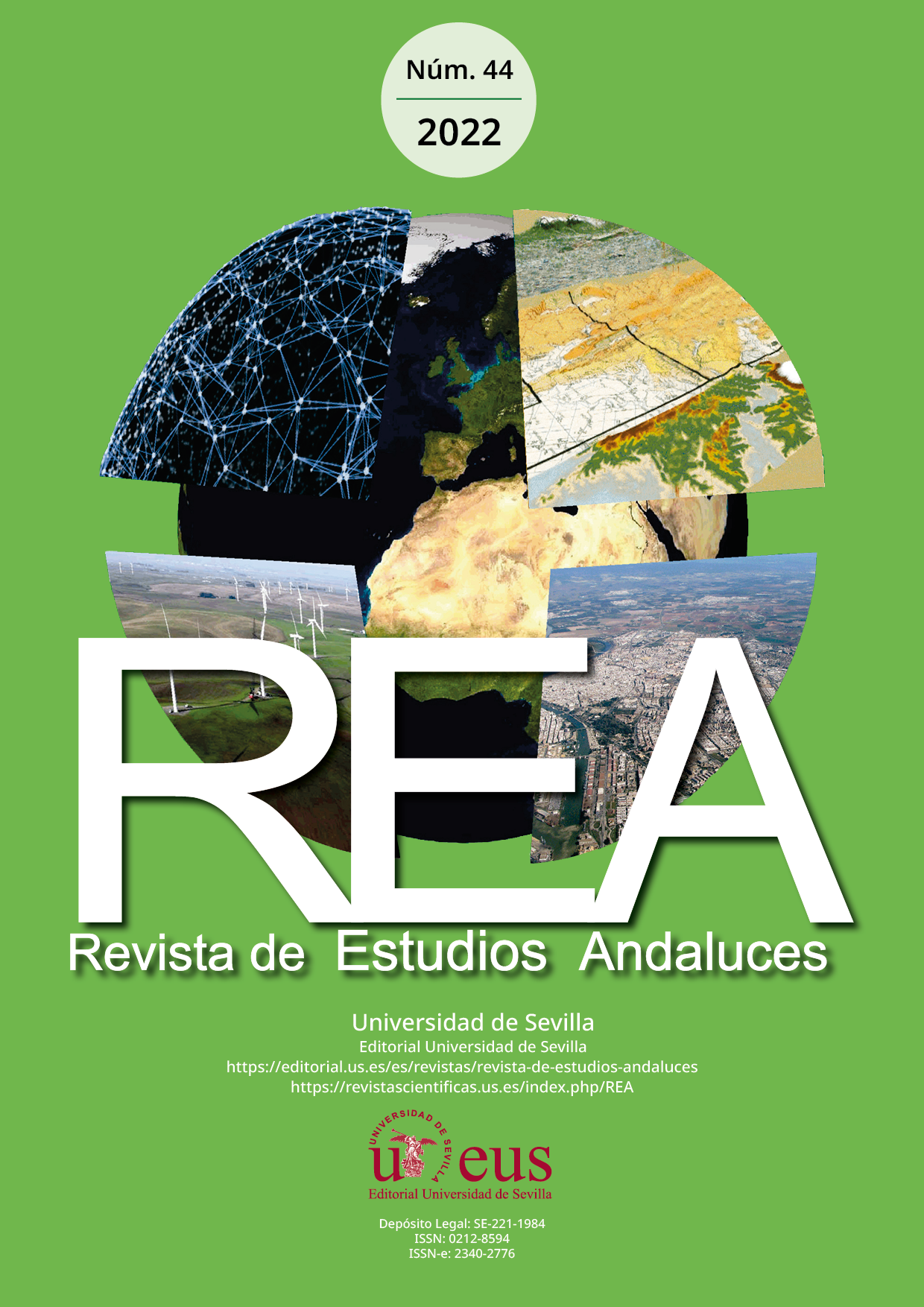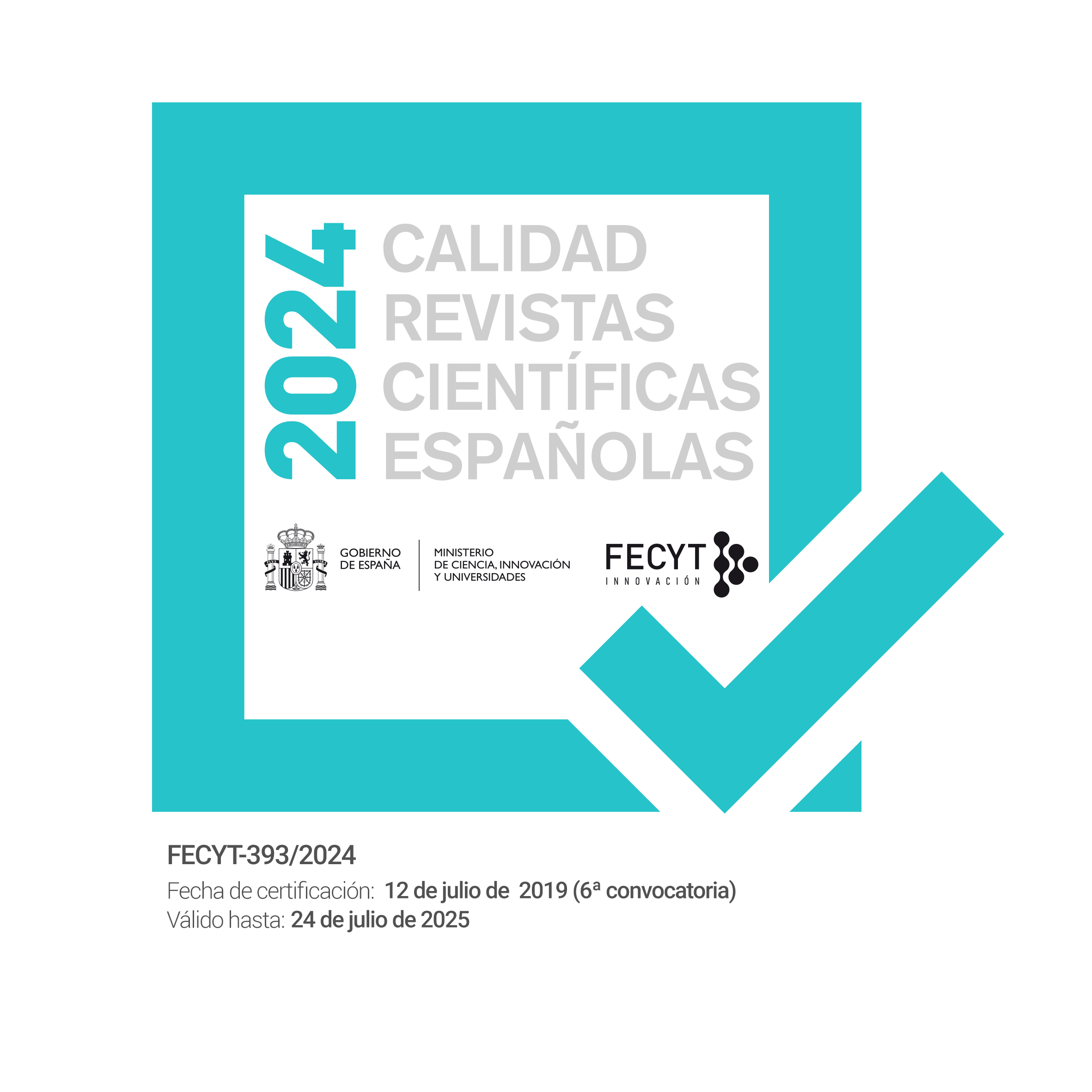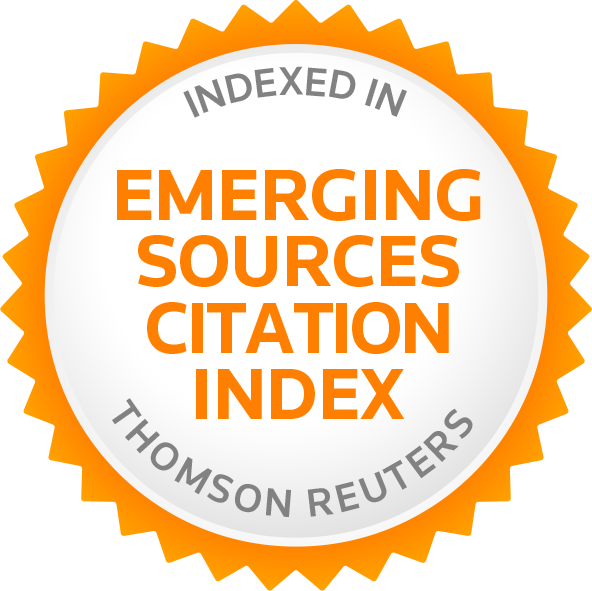Covid-19 and sustainable development in Europe: a temporal comparison
DOI:
https://doi.org/10.12795/rea.2022.i44.09Palabras clave:
Desarrollo sostenible, Índice, Covid-19Resumen
Covid-19 ha planteado grandes retos a nivel mundial. Uno de ellos es, sin duda, la consecución de los Objetivos de Desarrollo Sostenible (ODS) de la Agenda 2030.Este estudio pretende analizar, en una perspectiva temporal, los efectos de la pandemia en los niveles de desarrollo sostenible alcanzados en Europa.
Para medir el impacto de Covid-19, se construirán 3 índices de sostenibilidad (IS) diferentes referidos a 2015, 2018 y 2020. Para construir estos índices, se utilizarán 17 indicadores (uno por ODS) de la base de datos gratuita de Eurostat. Se utilizará el método AMPI (Mazziotta y Pareto, 2017) para agregar estos indicadores. Este método se basa en una transformación Min-Max y permite una comparación temporal absoluta. Además, este método permite una alta replicabilidad de los resultados. Además, se realizará una agrupación jerárquica según el método de Ward (1963) para captar las diferencias entre las distintas especificidades europeas.
Los resultados confirman los efectos negativos de Covid-19. De hecho, hay un empeoramiento general de los niveles de desarrollo sostenible entre 2015 y 2020.
Descargas
Citas
Alaimo L., Ciacci A., & Ivaldi E. (2021). Measuring sustainable development by non-aggregative approach Social Indicator Research, 157, 101-122. https://doi.org/10.1007/s11205-020-02357-0
Alon, T., Doepke, M., Olmstead-Rumsey, J., & Tertilt, M. (2020). The impact of COVID-19 on gender equality. Working paper [26947], National Bureau of Economic Research, Cambridge, MA. https://doi.org/10.3386/w26947
Bar, H. (2021). COVID-19 lockdown: animal life, ecosystem and atmospheric environment. Environment, development and sustainability, 23(6), 8161-8178. https://doi.org/10.1007/s10668-020-01002-7
Barbier, E. B., & Burgess, J. C. (2020). Sustainability and development after COVID-19. World Development, 135, 105082. https://doi.org/10.1016/j.worlddev.2020.105082
Bartiromo, M., Ciacci, A., & Ivaldi, E. (2022). Measuring Sustainable Development at the NUTS2 Level: Differences and Future Prospects. In R. Chandra Das (Ed.) Globalization, Income Distribution and Sustainable Development (95-116). Emerald Publishing Limited, Bingley. https://doi.org/10.1108/978-1-80117-870-920221014
Boto-Álvarez, A., & García-Fernández, R. (2020). Implementation of the 2030 Agenda Sustainable Development Goals in Spain. Sustainability, 12(6), 2546. https://doi.org/10.3390/su12062546
Brulé, G., & Maggino, F. (2017). Towards More Complexity in Subjective Well-Being Studies. In G. Brulé, & F. Maggino (Eds.) Metrics of Subjective Well-Being: Limits and Improvements. Happiness Studies Book Series. Springer, Cham. https://doi.org/10.1007/978-3-319-61810-4_1
Center on Budget and Policy Priorities (2022). Tracking the COVID-19 Economy’s Effects on Food, Housing, and Employment Hardships. https://www.cbpp.org/research/poverty-and-inequality/tracking-the-covid-19-economys-effects-on-food-housing-and
Ciacci, A., Ivaldi, E. & González, R. (2021). A Partially Non-Compensatory Method to Measure the Smart and Sustainable Level of Italian Municipality. Sustainability, 13, 435. https://doi.org/10.3390/su13010435
Consilium Europe (2022, 30 March). COVID-19: la risposta dell’UE alle ricadute economiche. https://www.consilium.europa.eu/en/policies/coronavirus/covid-19-economy/
Das, R.C., Chatterjee, T., & Ivaldi, E. (2021) Sustainability of Urbanization, Non-Agricultural Output and Air Pollution in the World’s Top 20 Polluting Countries. Data, 6, 65. https://doi.org/10.3390/data6060065
Dingel, J. I., & Neiman, B. (2020). How many jobs can be done at home? Journal of Public Economics, 189, 104235. https://doi.org/10.1016/j.jpubeco.2020.104235
Ecologistas en Acción (2007). La Desertificación en el Estado español. https://www.ecologistasenaccion.org/8776/la-desertificacion-en-el-estado-espanol/
Elavarasan, R.M., Pugazhendhi, R., Shafiullah, G.M. et al. (2022). Impacts of COVID-19 on Sustainable Development Goals and effective approaches to maneuver them in the post-pandemic environment. Environ Sci Pollut Res, 29, 33957–33987. https://doi.org/10.1007/s11356-021-17793-9
European Commission (2022). Recovery plan for Europe. https://ec.europa.eu/info/strategy/recovery-plan-europe_en
European Court of Auditors (ECA) (2018). Special Report: Combating desertification in the EU: a growing threat in need of more action. https://Op.Europa.Eu/Webpub/Eca/Special-Reports/Desertification-33-2018/En/Index.Html.
European Enviroment Agency (2020). Germany country profile - SDGs and the environment. https://www.eea.europa.eu/themes/sustainability-transitions/sustainable-development-goals-and-the/country-profiles/germany-country-profile-sdgs-and
Everitt, B. S. (1979). Unresolved Problems in Cluster Analysis. Biometrics, 35(1), 169. https://doi.org/10.2307/2529943
FAO (2020). How is COVID-19 affecting the fisheries and aquaculture food systems.
Federal Government (2022, March 29). Germany’s National Sustainable Development Strategy. https://www.bundesregierung.de/breg-en/issues/sustainability/germany-s-national-sustainable-development-strategy-354566
Fernandes, N. (2020). Economic effects of coronavirus outbreak on the world economy. IESE Business School Working Paper. https://doi.org/10.2139/ssrn.3557504
Ferriss, A. L. (1988). The Uses of Social Indicators. Social Forces, 66(3), 601. https://doi.org/10.2307/2579568
France Diplomacy - Ministry for Europe and Foreign Affairs (2017). 2030 Agenda for Sustainable Development: How is France doing? https://www.diplomatie.gouv.fr/en/french-foreign-policy/development-assistance/the-international developmentagenda/article/2030-agenda-for-sustainable-development-how-is-france-doing-may-2017
Giovannini, E. (2018). L’utopia sostenibile (Italian Edition). Editori Laterza.
Grasso, M., Klicperová-Baker M., Koos S., Kosyakova Y., Petrillo A., & Vlase I. 2021. The impact of the coronavirus crisis on European societies. What have we learnt and where do we go from here? Introduction to the COVID volume. European Societies 23: S2–32. https://doi.org/10.1080/14616696.2020.1869283
ILO (2020). ILO monitor: COVID-19 and the world of work. Third edition, Geneva. http://www.ilo.org/global/topics/coronavirus/impacts-and-responses/WCMS_743146/lang-zh/index.htm
Johnson, S. C. (1967). Hierarchical clustering schemes. Psychometrika, 32(3), 241–254. https://doi.org/10.1007/bf02289588
Ju, J. (2022, 28 March). What will COVID-19 do to the sustainable development goals? UN Dispatch. https://www.undispatch.com/what-will-COVID-19-do-to-the-sustainable-development-goals/
Kingdom of the Netherlands (2017). Report on the Implementation of the Sustainable Development Goals. Ministry of Foreign Affairs of the Netherlands, the Netherlands.
Kingdom of Sweden (2017). Agenda 2030, Kingdom of Sweden.
Kuznets S. (1955), Economic Growth and Income Inequality. American Economic Review, XLV (1), pp. 1-28.
Leal Filho, W., Brandli, L. L., Lange Salvia, A., Rayman-Bacchus, L., & Platje, J. (2020). COVID-19 and the UN Sustainable Development Goals: Threat to Solidarity or an Opportunity? Sustainability, 12(13), 5343. https://doi.org/10.3390/su12135343
Martínez-Valderrama, J., del Barrio, G., Sanjuán, M. E., Guirado, E., & Maestre, F. T. (2022). Desertification in Spain: A Sound Diagnosis without Solutions and New Scenarios. Land, 11(2), 272. https://doi.org/10.3390/land11020272
Mazziotta M., & Pareto A. (2013). RIEDS - Rivista Italiana di Economia, Demografia e Statistica - The Italian Journal of Economic, Demographic and Statistical Studies, SIEDS Societa’ Italiana di Economia Demografia e Statistica, 67(2), pp. 67-80, April-Jun.
Mazziotta, M., & Pareto A. (2007). Un indicatore sintetico di dotazione infrastrutturale: il metodo della penalità per coefficiente di variazione. Paper presented at Lo Sviluppo Regionale nell’Unione Europea-Obiettivi, Strategie, Politiche, Atti Della XXVIII Conferenza Italiana di Scienze Regionali, Bolzano, Italy, September 26–28.
Mazziotta, M., & Pareto, A. (2017). Measuring Well-Being Over Time: The Adjusted Mazziotta–Pareto Index Versus Other Non-compensatory Indices. Social Indicators Research, 136(3), 967–976. https://doi.org/10.1007/s11205-017-1577-5
Ministero dell’Economia e delle Finanze (MEF)(2021). Piano Nazionale di Ripresa e Resilienza. #NEXTGENERATIONITALIA. PNRR_0.pdf (governo.it)
Ministro per il Sud e la Coesione territoriale (2020). Piano Sud 2030. Sviluppo e Coesione per l’Italia. http://www.ministroperilsud.gov.it/media/2003/pianosud2030_documento.pdf.
Młodak, A. (2020). k-Means, Ward and Probabilistic Distance-Based Clustering Methods with Contiguity Constraint. Journal of Classification, 38(2), 313–352. https://doi.org/10.1007/s00357-020-09370-5
Organisation for Economic Co-operation and Develop, OECD. (2008). Handbook on Constructing Composite Indicators: Methodology and User Guide. (Pap/Ado ed.). OECD Publishing.
Organisation for Economic Co-operation and Develop, OECD (2020). Women at the core of the fight against COVID-19 crisis. OECD Publishing. http://www.oecd.org/coronavirus/policy-responses/women-at-the-core-of-the-fight-againstcovid-
Primc, K., & Slabe-Erker, R. (2020). The Success of Public Health Measures in Europe during the COVID-19 Pandemic. Sustainability, 12(10), 4321. https://doi.org/10.3390/su12104321
Poudel, P. B., Poudel, M. R., Gautam, A., Phuyal, S., Tiwari, C. K., Bashyal, N., & Bashyal, S. (2020). COVID-19 and its global impact on food and agriculture. Journal of Biology and Today’s World, 9(5), 221-225.
Real Instituto Elcano (2021). Challenges and opportunities for Spain in times of COVID-19. https://www.realinstitutoelcano.org/en/work-document/challenges-and-opportunities-for-spain-in-times-of-covid-19/
Republic of France (2016). Report on the Implementation by France of the Sustainable Development Goals,France. https://sustainabledevelopment.un.org/content/documents/10726Report%20SDGs%20France.pdf
Sachs, J.D. (2014). The Age of Sustainable Development. Columbia University Press.
SDG WATCH EUROPE (2019a). Finland. https://www.sdgwatcheurope.org/finland/ (Accessed on: 29 March 2022)
SDG WATCH EUROPE (2019b). The Netherlands. https://www.sdgwatcheurope.org/the-netherlands/ (Accessed on: 29 March 2022)
Shrestha, N., Shad, M. Y., Ulvi, O., Khan, M. H., Karamehic-Muratovic, A., Nguyen, U. S. D., Baghbanzadeh, M., Wardrup, R., Aghamohammadi, N., Cervantes, D., Nahiduzzaman, K. M., Zaki, R. A., & Haque, U. (2020). The impact of COVID-19 on globalization. One Health, 11, 100180. https://doi.org/10.1016/j.onehlt.2020.100180
Shulla, K., Voigt, B. F., Cibian, S., Scandone, G., Martinez, E., Nelkovski, F., & Salehi, P. (2021). Effects of COVID-19 on the Sustainable Development Goals (SDGs). Discover Sustainability, 2(1). https://doi.org/10.1007/s43621-021-00026-x
Steger, M. B. (2017). Globalization: A Very Short Introduction (Very Short Introductions) (4th ed.). Oxford University Press. https://doi.org/10.1093/actrade/9780198779551.001.0001
Steinbrink, L. (2019, March 25). What Is Sustainable Development and Why Is It so Important?Https://Www.Emeraldbe.Com/Ebe-Home. https://blog.emeraldbe.com/new_blog/sustainable_development_important
SWEDEN.SE. (2021). Sweden and sustainability. (2021, November 29). Sweden.Se. https://sweden.se/climate/sustainability/sweden-and-sustainability
Tatem, A. J., Hay, S. I., & Rogers, D. J. (2006). Global traffic and disease vector dispersal. Proceedings of the National Academy of Sciences, 103(16), 6242–6247. https://doi.org/10.1073/pnas.0508391103
UNESCO (2022). Education: From disruption to recovery. UNESCO. https://en.unesco.org/covid19/educationresponse
United Nations (2020). Policy brief: the impact of COVID-19 on women. New York. http://www.un.org/
sites/un2.un.org/files/policy_brief_on_covid_impact_on_women_9_april_2020.pdf
Valdivia, A. G. (2019, July 31). Desertification: A Serious Threat To Southern Europe. Forbes. https://www.forbes.com/sites/anagarciavaldivia/2019/07/30/desertification-a-serious-threat-to-southern-europe-lands/?sh=522dc1953021 (accessed on: 30 May 2022)
Vercelli, A. (2003). Globalizzazione e sostenibilità dello sviluppo. Economia Politica, Fascicolo 2, agosto 2003.
Ward, J. H. (1963). Hierarchical Grouping to Optimize an Objective Function. Journal of the American Statistical Association, 58(301), 236–244. https://doi.org/10.1080/01621459.1963.10500845
WCED (1987). Our Common Future. Oxford University Press.
WHO (2020a). Coronavirus Disease 2019 (COVID-19) Situation Report-51. https://www.who.int/docs/default-source/coronaviruse/situation-reports/20200311-sitrep-51-covid-19.pdf?sfvrsn=1ba62e57_10 (accessed on 11 March 2022).
WHO (2020b). Coronavirus Disease 2019 (COVID-19) Situation Report-135. https://www.who.int/docs/default-source/coronaviruse/situation-reports/20200603-covid-19-sitrep-135.pdf?sfvrsn=39972feb_2
Women, U. N., & Count, W. (2021). Measuring the shadow pandemic: Violence against women during COVID-19. UN Women Data Hub.
WWF (2019). WWF alerta de sequías más graves en España si no hay un cambio radical. https://www.wwf.es/informate/biblioteca_wwf/?50880/WWF-alerta-de-sequias-mas-graves-en-Espana-si-no-hay-un-cambio-radical-en-la-gestion-del-agua. https://wwfes.awsassets.panda.org/downloads/cronica_de_una_sequia_anunciada_1.pdf
Descargas
Publicado
Cómo citar
Número
Sección
Licencia
Derechos de autor 2022 Revista de Estudios Andaluces

Esta obra está bajo una licencia internacional Creative Commons Atribución-NoComercial-CompartirIgual 4.0.
La edición electrónica de la Revista de Estudios Andaluces se ofrece en acceso abierto desde el número 28 publicado en 2011 hasta la actualidad. Las ediciones impresa y electrónica de esta Revista son editadas por la Editorial de la Universidad de Sevilla, siendo necesario citar la procedencia en cualquier reproducción parcial o total.
La Revista de Estudios Andaluces no cobra tasas por el envío de trabajos, ni tampoco cuotas por la publicación de sus artículos. La Revista es gratuita desde el momento de la publicación de cada número y sus contenidos se distribuyen con la licencia “CreativeCommons Atribución-NoComercial-SinDerivar 4.0 Internacional” , que permite al usuario de la Revista de Estudios Andaluces criterios que cumplen con la definición de open access de la Declaración de Budapest en favor del acceso abierto. Puede consultar desde aquí la versión informativa y el texto legal de la licencia. Esta circunstancia ha de hacerse constar expresamente de esta forma cuando sea necesario.







